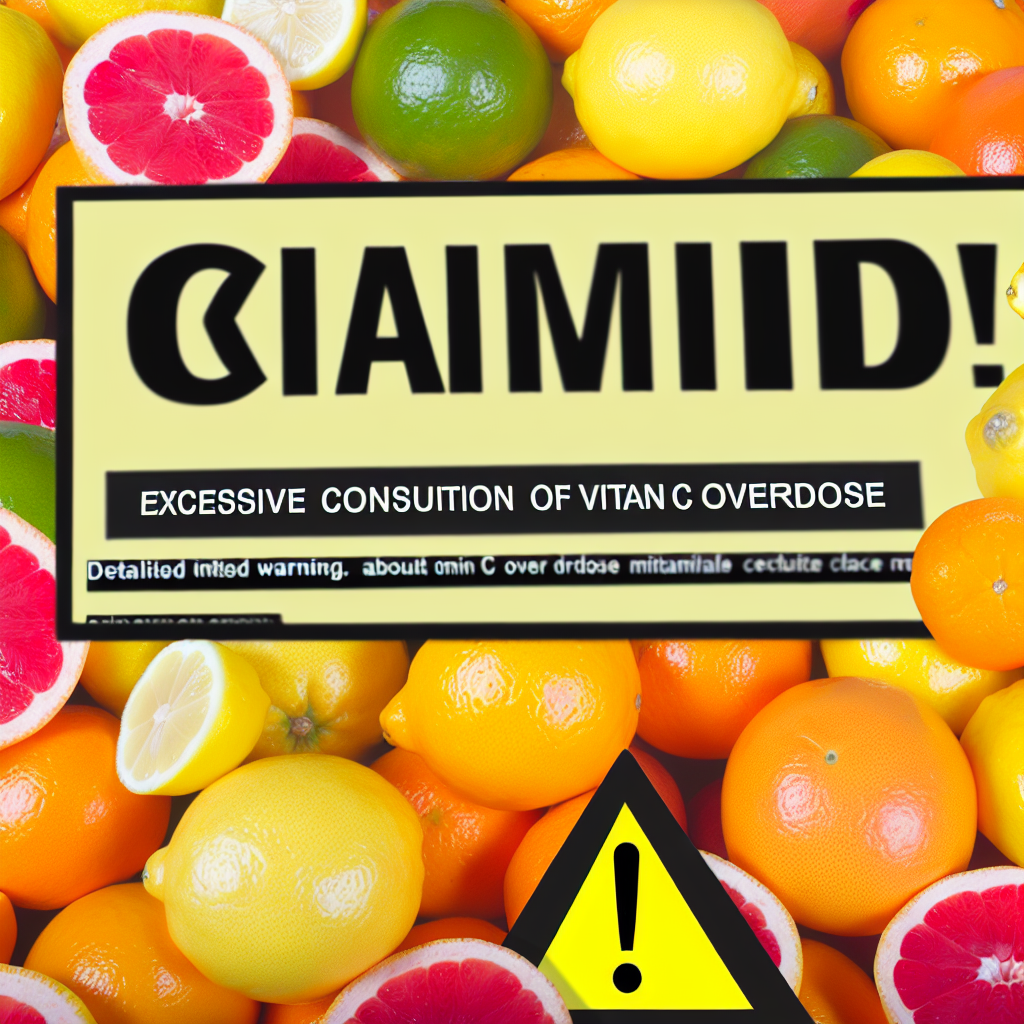Vitamin C is often celebrated as a nutritional superstar. From boosting immunity to promoting healthy skin, it plays an essential role in our daily wellness routine. But here’s a question not many people consider: Can too much vitamin C be harmful?
While getting enough vitamin C is crucial, overconsuming it—especially through supplements—can lead to discomfort and potential health risks. In this guide, we’ll explore how much vitamin C your body needs, what happens if you take too much, and practical tips to stay safe while reaping its benefits.
What Makes Vitamin C Essential?
Vitamin C, known scientifically as ascorbic acid, is involved in many important functions that keep your body running smoothly. Here are some key roles it plays:
- Boosts the immune system: Vitamin C helps support the production of white blood cells, which are your body’s infection-fighting army.
- Promotes collagen production: Collagen gives skin its elasticity and strengthens cartilage and bones.
- Provides antioxidant protection: It neutralizes free radicals, preventing oxidative damage to your cells.
- Enhances iron absorption: Particularly helpful for people on plant-based diets, as vitamin C makes non-heme iron easier to absorb.
If you’ve ever reached for an orange when you feel a cold coming on, you’ve trusted in the benefits of vitamin C. Other excellent food sources include strawberries, bell peppers, broccoli, and kiwi—a snack I always keep handy for a quick vitamin C boost!
How Much Vitamin C Do You Need?
Luckily, your body doesn’t require enormous amounts of vitamin C to stay healthy. The Recommended Dietary Allowance (RDA) outlines the daily amount needed to meet most people’s basic nutritional needs:
- Women: 75 mg/day
- Men: 90 mg/day
- Children: Between 15-45 mg/day, depending on their age
- Pregnant or breastfeeding women: 85-120 mg/day
To put these numbers into perspective, one medium orange contains about 70 mg of vitamin C—nearly enough to meet the RDA for women. Eating fresh fruits and vegetables typically covers most people’s needs without requiring supplements.
What Is the Safe Upper Limit?
The Tolerable Upper Intake Level (UL) for vitamin C is 2,000 mg/day for adults. Anything beyond this limit can increase the likelihood of side effects, particularly when supplements are involved.
How Much Vitamin C Is Too Much?
Because vitamin C is a water-soluble nutrient, many people assume their body can easily flush out any excess. While this is true for small amounts, regularly consuming vitamin C in high doses can overwhelm your system and cause problems.
While a balanced diet rarely results in overconsumption, high-dose supplements are where things get tricky. For example, if you’re taking a 1,000 mg vitamin C pill twice daily for an extended period, you’re potentially exceeding the safe limit, especially if you pair this with a vitamin C-rich diet.
Signs You’re Taking Too Much Vitamin C
Vitamin C toxicity isn’t common, but overdoing it can bring some unpleasant symptoms. If you start noticing the following issues, it might be time to reassess your intake:
- Digestive discomfort: Diarrhea, nausea, or stomach cramps are common reactions to excessive vitamin C intake.
- Kidney stones: High levels of vitamin C produce oxalate, a compound that increases the risk of kidney stones.
- Headaches or fatigue: Large doses can leave you feeling drained and may trigger headaches.
- Skin flushing: Skin redness or warmth can result from taking more supplements than needed.
While these side effects aren’t typically dangerous, some groups of people—such as those with kidney disorders—may be more vulnerable. If you have pre-existing health conditions, consult a healthcare provider before taking high-dose supplements.
Smart Tips to Avoid Vitamin C Overdose
With a little mindfulness, it’s easy to enjoy the benefits of vitamin C without crossing into unsafe territory. Here are some tips to keep your intake in check:
- Focus on whole foods: Fruits and vegetables like oranges, strawberries, and bell peppers are excellent sources of vitamin C—and come with additional nutrients like fiber and potassium.
- Use supplements cautiously: If you’re taking vitamin C pills, read the label carefully and avoid doses that would push you over the 2,000 mg/day limit.
- Track your intake: Combining supplement and food sources? Use a nutrition app or jot down your daily totals to stay mindful of how much you’re taking.
- Listen to your body: Symptoms like nausea or cramps can signal that you’re overdoing it. Cut back if you notice these reactions.
- Consult a professional: Unsure about your needs? Your doctor or a registered dietitian can help tailor your vitamin intake to your unique health circumstances.
The Bottom Line: Moderation is Key
Vitamin C is undoubtedly vital for your health. It strengthens your immune system, promotes healthy skin, and protects your cells from damage. But when it comes to nutrients, more doesn’t always mean better. Consuming excessive doses—especially through supplements—can lead to unwanted side effects.
The simplest strategy? Stick to the Recommended Dietary Allowance (RDA), focus on whole food sources, and only use supplements when necessary. If you do take supplements, ensure you’re keeping your intake well below the Upper Limit (UL) of 2,000 mg/day.
Want more ideas for incorporating vitamin C-rich foods into a balanced diet? Check out our guide on vitamin-packed recipes that will keep you healthy and energized!
